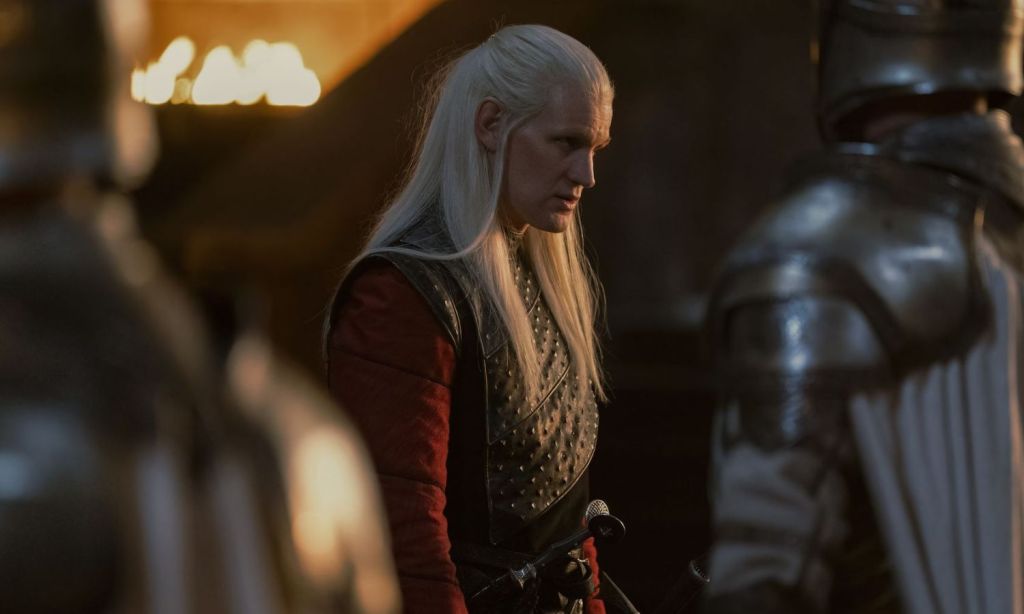If you walked down the street and struck up a conversation with the first person that walked past, there’s a 99% chance that they would be at least familiar with, if not a fan of, Game of Thrones.
No series impacted the culture of the 2010s as much as Game of Thrones did, with 272 awards, the possession of six Guinness World Records, from “Most Pirated TV Program” to “Largest TV Drama Simulcast”, and over 4,500 babies named after characters from the show.
Now, it’s been 11 years since author George R.R Martin released the fifth instalment of seven intended novels making up his A Song of Ice and Fire series, and that, combined with the Emmy Award winning show’s divisive and controversial conclusion, ensured that any attempt at adding to the extensive lore of the world of Westeros onscreen would be met with a blend of scepticism, intrigue, and cautious optimism. It’s that slight feeling of dread you get as you rise up the incline of a rollercoaster, knowing there’s only one way down, and you’re going to either love it or hate it.
Enter House of the Dragon.
Related: ‘House of the Dragon’: Will It Breathe Fire Back Into ‘Game of Thrones’?
Related: Why ‘House of the Dragon’ Is a Must Watch, Even If You Didn’t Watch ‘Game of Thrones’
Set around 200 years before the events of Game of Thrones and based upon sections of Martin’s novel Fire and Blood, the series deals with the Targaryen dynasty and the events that led to the family’s civil war of succession, known as the ‘Dance of the Dragons’.
With all the political intrigue, lies, plots and deception befitting a show centred around a royal family, showrunners Ryan Condal and Miguel Sapochnik do a great job of depicting an era of Martin’s world that feels new and refreshing, yet familiar. The show begins by taking a more ‘inside out’, condensed approach to the story telling of their characters, as opposed to Game of Thrones’ beginnings of an ‘outside in’ perspective that spread out the main characters across the continent and beyond.
The nuanced exploration into the show’s characters and the slow-paced extraction of their traits, relationships, and issues brilliantly sows the seeds for the Targaryen family’s eventual demise and relegation to the position they find themselves in at the beginning of Game of Thrones. It helps that the cast — a mixture of big names and talented fresh faces that includes Matt Smith, Paddy Considine, Emma D’Arcy, Olivia Cooke, Emily Carey, and Australia’s own Milly Alcock — do an incredible job in portraying these characters in a real, human way that makes you root for them, despair with them, and hate them as much as you would if you found yourself placed in the midst of the increasingly embroiling state of the royal family.
In fact, the perspective House of the Dragon has taken in presenting this adaptation of the world of Westeros is a rectification of the mistakes many believe the mistakes many believe were made by Game of Thrones in the last few seasons of their show. Indeed, those rewarding moments of television that make you shout in relief, or leave you with your hands on your head jaw touching the ground, cannot be rushed or masked by high budget production and large scale action sequences.
To make the most out of big, consequential, and extravagant moments in a television series, one must first lay the groundwork to make you truly care for the characters and their relationships. The Westeros society Martin has described in his books is brutal and unforgiving, and the extent to which he has gone to represent a medieval-inspired fantasy world makes it hard to capture the realism. Yet, Condal and Sapochnik have done an excellent job in humanising the characters, which allows the audience to truly understand the suffocating feeling of the weight of a royal crown.
Despite being only a few episodes in — albeit one large time jump away from the conflict being significantly ramped up — the audience is already well aware of the situations that the central characters find themselves in, as well as their motives and drive. It will be interesting to see where the rest of Season 1 takes us, but it’s clear that whatever the direction House of the Dragon takes, it will be rewarding, momentous, and most importantly, filled with fire and blood.
Want more House of the Dragon? Read all our content here, and check out the articles below:
- Why ‘House of the Dragon’ Is a Must Watch, Even If You Didn’t Watch ‘Game of Thrones’
- What Is a “Sister Wife”? Your (Unofficial) ‘House of the Dragon’ Dictionary
Read more stories from The Latch and subscribe to our email newsletter.

